OUR BURNING PLANET
Water is life: commission of inquiry’s report reveals ‘damning’ review of water crisis inertia in Hammanskraal
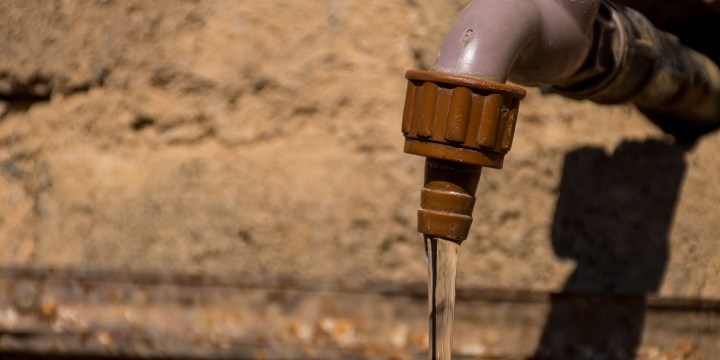
Hammanskraal community has lived with contaminated water for 16 years running. Now, competing political party ActionSA has stepped up to hold the Tshwane Municipality accountable. For the municipality and political organisations, it’s become a political fight, but for the people of Hammanskraal, it’s more simple — water is life.
Hammanskraal has faced a water crisis since 2005.
The South African Human Rights Commission (SAHRC) deemed the water in Hammanskraal “unfit for human consumption” in 2019, but residents are still living with unsafe water.
Isaac Motloung, who has lived in Hammanskraal for several years, told Daily Maverick that often the tap water is dirty, “the colour is yellow, like urine” or they wake up to the water being switched off.
Motloung explains that when the water doesn’t look clear, they buy bottled water from the shop for drinking, but still use tap water for bathing and cooking. The people who can’t afford to buy water have to use the tap water and boil the water. He says most of the people get running stomachs.
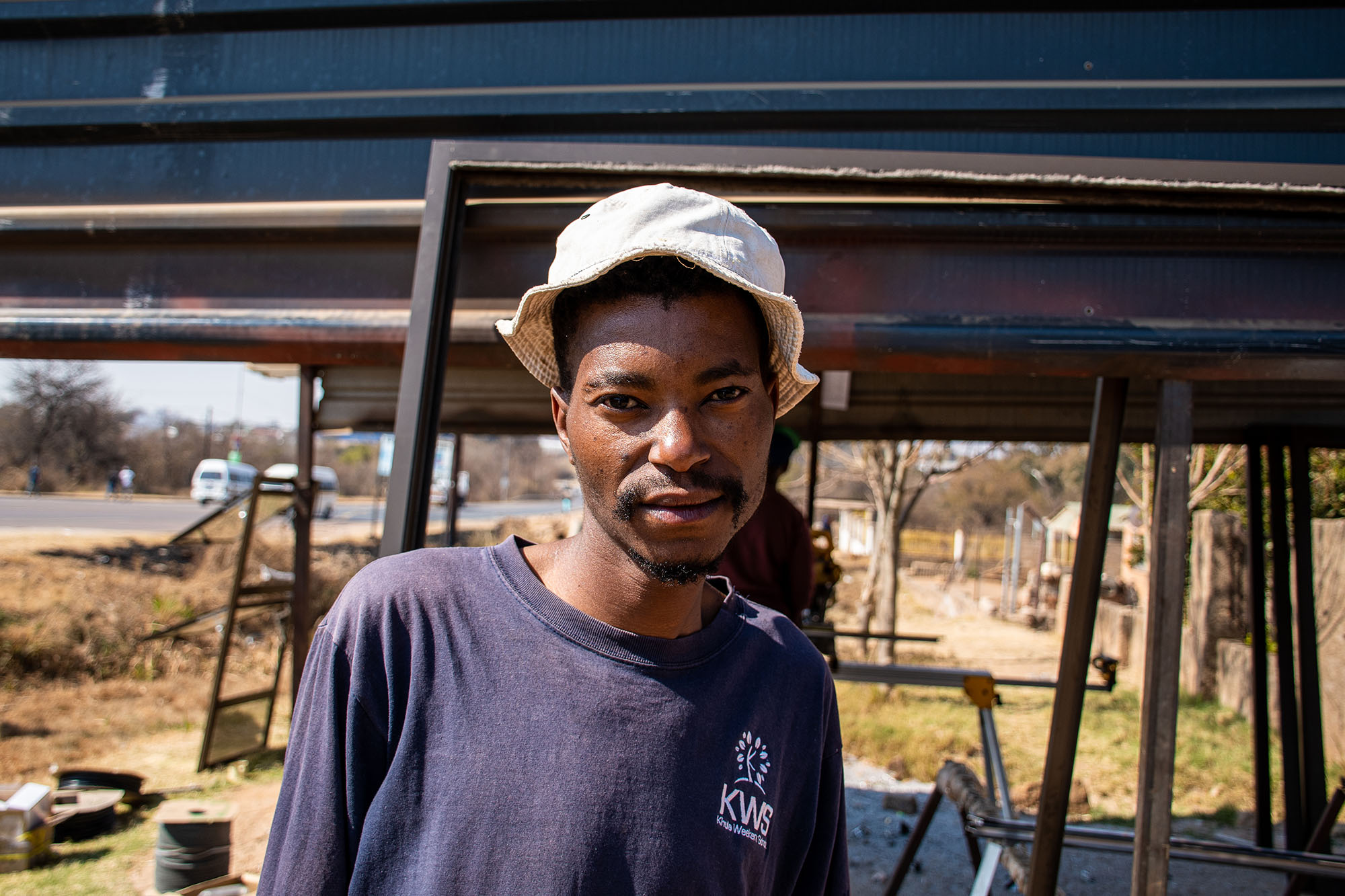
Isaac Motloung, who lives in Hammanskraal said about drinking the water, “We don’t have a choice, you know, water it’s life. Without water we can’t do anything.” (Photo: Julia Evans)
“We don’t have a choice, you know, water, it’s life,” said Motloung shrugging, “without water we can’t do anything.”
Joseph Ncube, who has lived in Hammanskraal for 20 years, since he was nine years old, said despite its contamination, “we can’t stop drinking the water because we will suffer.

Joseph Ncube says he often drinks the water when it looks clear, “sometimes our stomach is not fine… but anyway, [there’s] nothing we can do you see. We can’t stop drinking the water because we will suffer.” (Photo: Julia Evans)
David Matjila, who has lived in Hammanskraal his whole life (since 1977) and is a member of ActionSA, told Daily Maverick that, “when we open up the water taps, sometimes the water will come out being some sort of a dusty colour. We’ll see that this water is not consumable.”
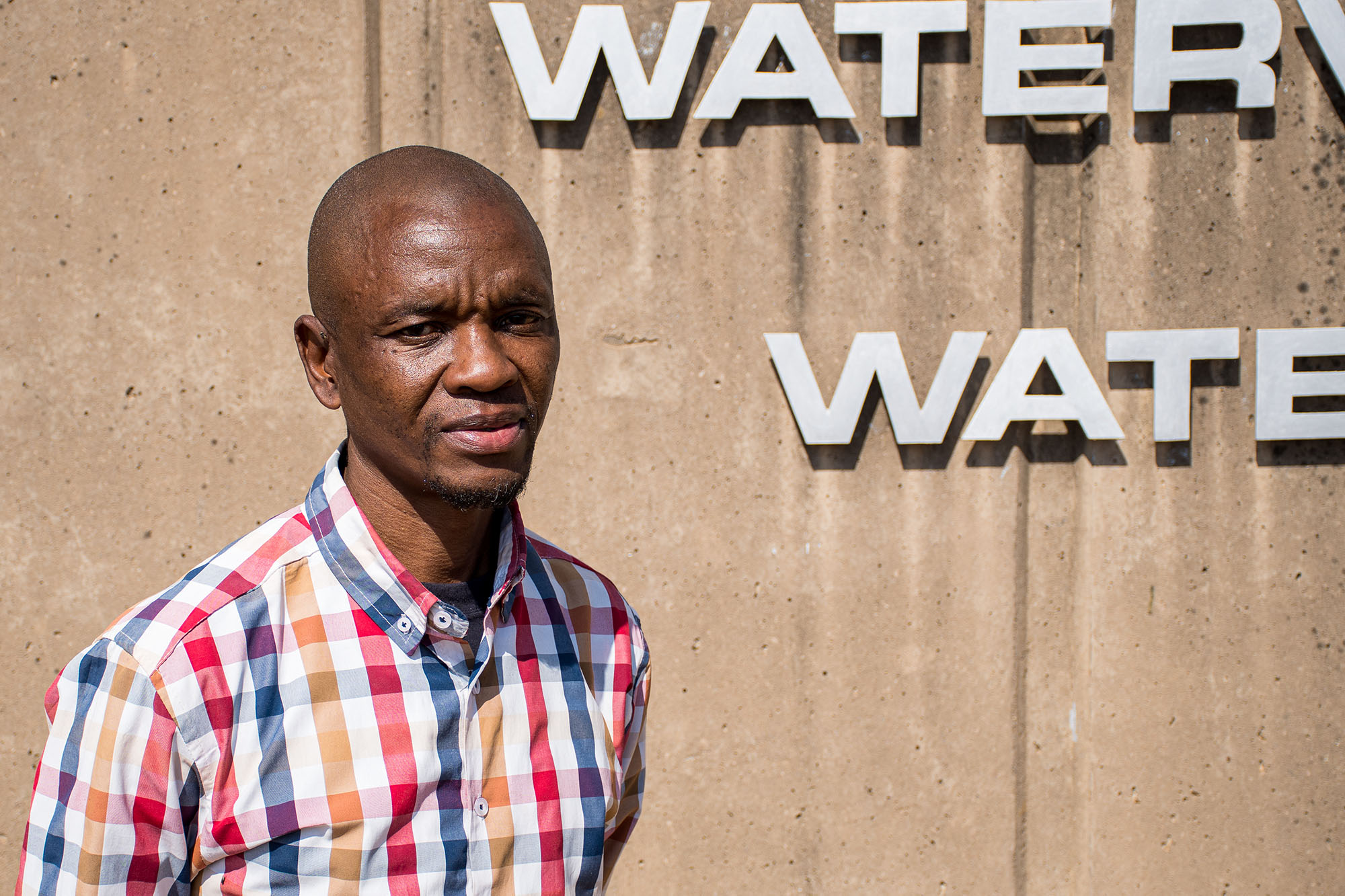
David Matjila, who has lived in Hammanskraal his whole life, says, “What I want the government to know is that they are failing us dismally. They are playing with our lives.” (Photo: Julia Evans)
Nelly Sebopa, a member of ActionSAwho who has also lived in Hammanskraal his whole life (47 years), said the water “tastes foul, it looks dirty. Even if you tried to boil it, it’s got some foam there at the top. Anyone who’s drinking that water is doing so because they don’t have a choice.”

Nelly Sebopa from Action SA told Daily Maverick the water, “tastes foul, it looks dirty. Anyone who’s drinking that water is doing so because they don’t have a choice.” (Photo: Julia Evans)
To figure out what is going on, and to hold the local municipality and government accountable, new political party ActionSA commissioned an enquiry into the Hammanskraal water crisis by an independent commission in April 2021.
Now, the report has been released and includes voices from water experts, academics and Hammanskraal community members from a public hearing held from 16-18 April 2021.
Along with an overview from the public hearing, the report was concerned with scientific analysis of the water which delved into the cause of the contamination, its effect on humans, soil and plant life and the constitutional and statutory duties of the government in addressing the crisis.
Based on section 27 of the constitution, the commission states that the municipality has violated the rights of the residents of Hammanskraal — by not affording their basic human right of access to sufficient water.
At Rooiwal Waste Water Treatment Plant on Thursday 5 August, in an almost humorous reminder of why we were gathered, flies swarmed around the panel member’s head and a strong stench of the contaminated water was apparent. The Independent Commission of Inquiry handed over their report of the Hammanskraal water crisis to Herman Mashaba, who is the president of ActionSA.
Mashaba said at the presentation, “I read this report the last few days and it’s quite damning. But at the end of the day, we [are] really grateful that we can have South Africans like you who are saying, we will do what is right for the people of this country.”
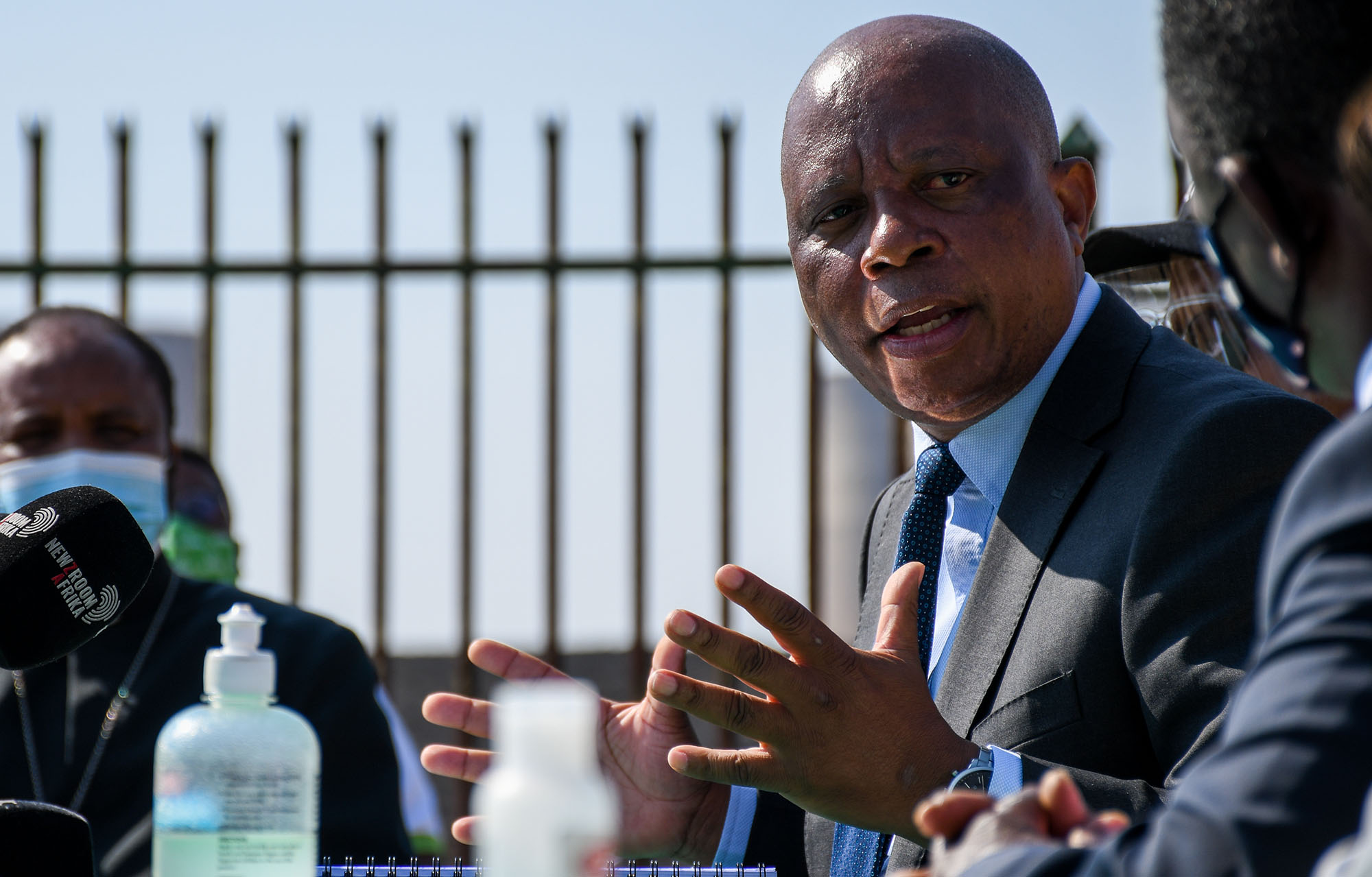
Herman Mashaba during a Q&A with the media. (Photo: Julia Evans)
Later in the day, Mashaba handed over the report to City of Tshwane Executive Mayor, Randall Williams, outside Tshwane House.
ActionSA said in a press statement, “the commission has characterised the City of Tshwane as insensitive, irresponsive, non-transparent, unaccountable and marked by delinquent inertia on the water crisis in Hammanskraal.”
Why is the water contaminated?
In a nutshell, the Rooiwal Wastewater Treatment Plant — that treats the Hammanskraal community’s water that comes from baths, basins and sewerage pipelines — was not built to support such a big population. Along with not having the capacity to meet the expanding population demands (which has led to sewage spills), the plant is not maintained properly, which can also cause the water to be contaminated.
The report provides an overview of what Victor Wegerle, Head of Operations at Singawaza Aid, presented during the public hearing: “the plant was built for approximately 80 million litres a day when the population was still very small in number. There has since been a population explosion which has resulted in the plant — which has not been expanded to meet the increased demand — having to accommodate approximately 200 million litres a day.”
After the plant treats the 200 million litres of sewage water a day, it flows into the Apies River and then into the Leeudraai (Temba) Dam, which is the Hammanskraal community’s water source.
The report included senior lecturer at the Department of Chemistry at the University of Pretoria, Dr Dan Molefe’s, investigation into heavy metals found in the water.
Molefe indicated that the Hammanskraal water is below acceptable levels, with the cause being pin-pointed to a sewage leak from the Rooiwal Wastewater Treatment Plant.
The report states, “The presence of faecal coliform bacteria in the effluent discharged by the plant into the Apies River currently allowed to pool on the sludge lands is indicative of faecal pollution.”
During the hearing, in response to the scientific analysis of the water, audience members reported that, “especially in the years 2015-2016, water in some parts of Hammanskraal and Temba had obvious fragments or particles of human waste/excrement, or a strong stench thereof.”
The report states that for the water to be treated effectively, the plant must be upgraded and funds for that must be allocated.
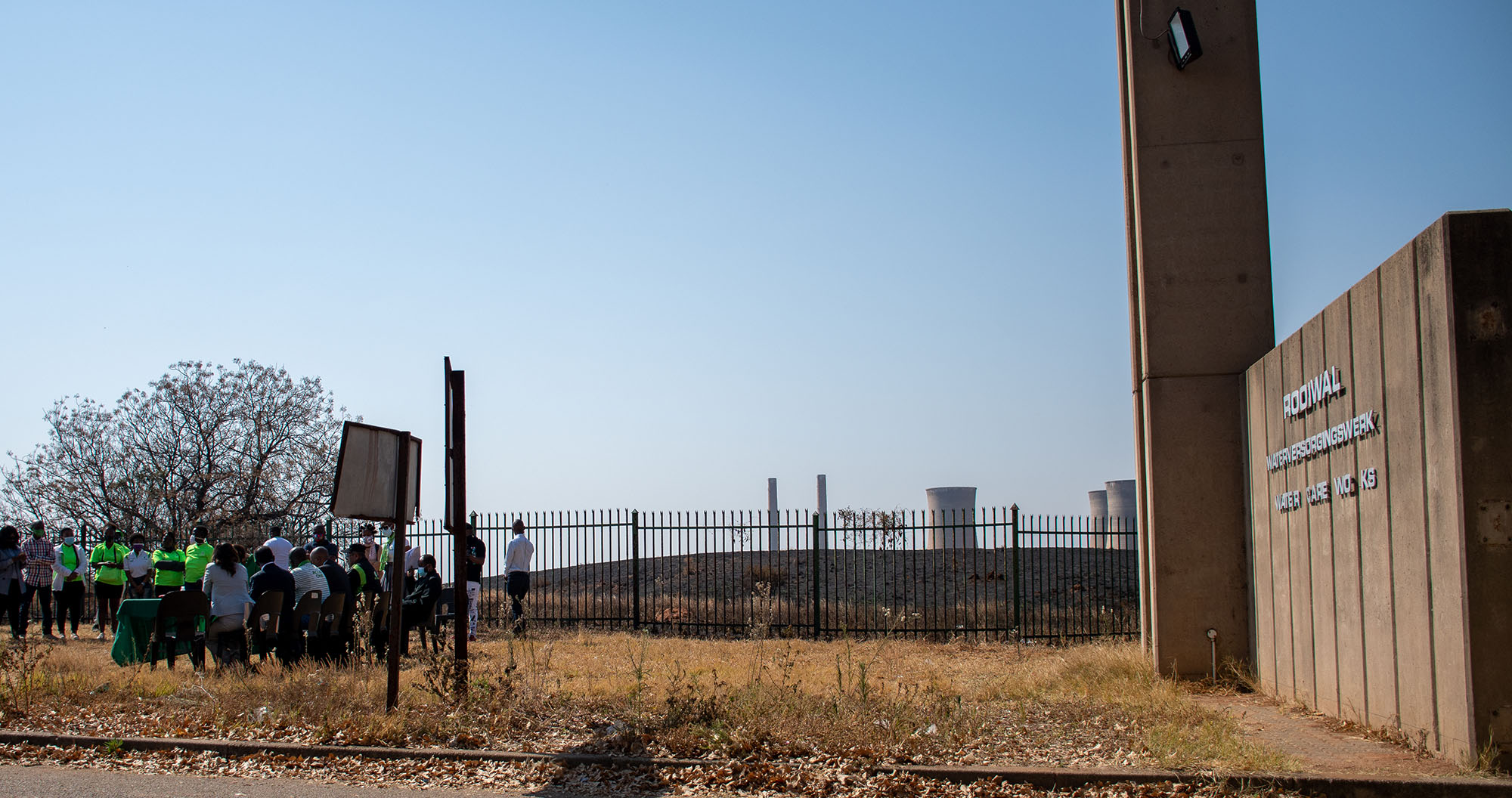
An Independent panel handed over the final Report of the Hammanskraal Water Inquiry to Herman Mashaba outside the Rooiwal Waste Water Treatment Plant on Thursday, 5 August. Photo: Julia Evans
The effect of this water contamination
The report included findings from Dr Molefe and his team regarding the toxicity of various concentrations of metals found in the water.
The contamination, mainly pinpointed by sewage spills in the plant, explains why the water is below permissible standards and why some people have been hospitalised.
Molefe reported high levels of iron, which can cause water to look and taste bad and cause plumbing problems.
Potential effects reported by Molefe include, “hair loss; brownish teeth; developmental or reproductive issues, including miscarriage; weakened bones (calcium compromised) and children born with fragile bones.”
The toxic effects of the contaminated water were illustrated by a paper presented by local farmer Theuis Vogel, who found that the amount of faecal coliform bacteria evident in the water (that gets discharged at the plant) is indicative of faecal pollution which is not fit for animal or human consumption or irrigation of crops and vegetables eaten raw.
Due to the untreated sewage that pools up near his area, the report states that Vogul and his family, “contend with heavy odour of untreated sewage and vast quantities of flies, bloodworm and midges covering the area.”
The stench causes his family’s sinus problems, headaches, and trouble sleeping.
During the presentation of the report, the chairperson of the commission, professor of law and advocate Jonas Letsoalo gave a brief overview of the report’s findings.
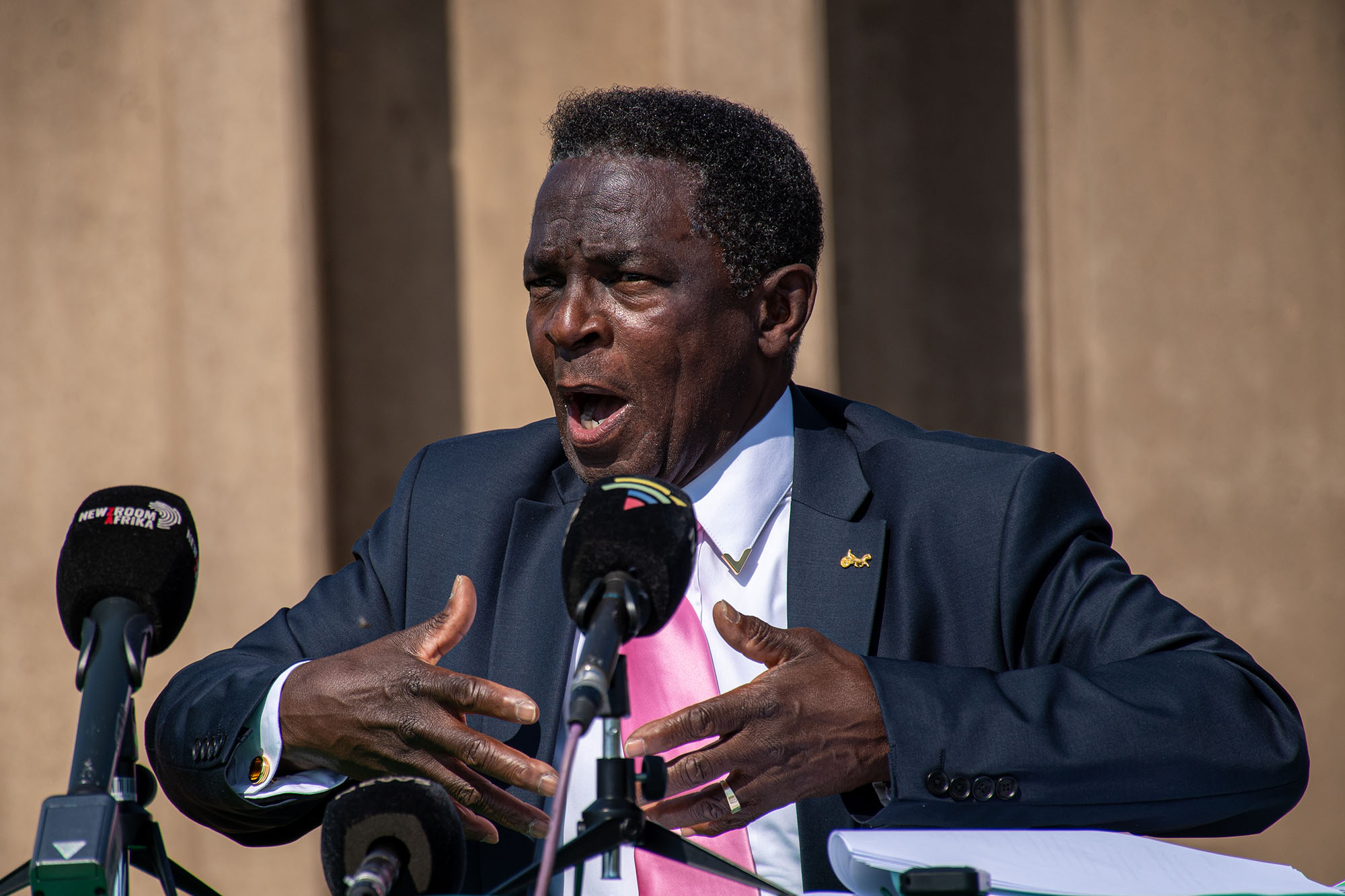
Chairperson of the commission Professor and Advocate Jonas Letsoalo, gave a summary of the report of inquiry into the Hammanskraal Water Crisis at the presentation of the report outside the Rooiwal Wastewater Treatment Plant on Thursday, 5 August 2021. (Photo: Julia Evans)
Letsoalo stated various findings including that the high nitrate levels found in the water can cause ‘blue baby syndrome’, the faecal pollution in the water can cause bladder cancer and the high levels of manganese found in the water can cause nervous system disease like Parkinson’s disease.
Additionally, Letsoalo stated that the high levels of ammonia found in the water can cause ammonia poisoning and damage to the human body, listing symptoms of coughing, chest pain, as well as wheezing.
Finally, Letsoalo highlighted how the chlorine used for disinfecting the water at the plant can cause diseases as well, stating, “if people could drink too much of the chlorinated water now, the symptoms of this chlorine poisoning include stomach aches, vomiting, diarrhoea and dry, itchy skin…heart diseases, eczema, asthma, and even cancer when chlorine interacts with water producing chemicals like the one called trihalomethanes.”
From interviews collected by Daily Maverick, there is evidence to support some of Letsoalo’s claims, particularly in relation to stomach and skin issues that are a result of the contamination.
David Matjila from Hammanskraal said, “my parents, they are old people they always get stomach cramps” while Goitsemodimo Mojolwane, who has lived in Hammanskraal since 1998 said, “I personally have had a runny stomach because of drinking the water”.
Sepoba from Hammanskraal said that his whole community has observed a change in residents’ skin complexion due to the water. “We have something that is wrong with our complexions,” he said brushing his arm.
He added, “We all get sick from that water. I’ve never heard anyone who said they never got sick off that water.”
Ncube from Hammanskraal also reported that many community members had a “bad stomach” and their skin changed, and that he often sees children getting the sickest.
Why the situation has been left so long
The commission of inquiry reported that the water crisis in Hammanskraal has been outstanding and unresolved since 2005 and blamed municipal inaction (motivated by political favour) for the ongoing issue.
From the public hearings from various political figures and a whistle-blower, it was deemed that Tshwane municipality’s inaction is down to politics.
Hannes Coetzee from the Democratic Alliance alleged that there were “irregularities in the awarding of a R295-million tender for Phase 1 of upgrades to the plant.”
Coetzee added, “The City of Tshwane awarded the tender to a joint venture involving a company allegedly owned by Edwin Sodi, but to date little work has been completed.”
The commission critiques the City’s past excuse that the issue has been down to a lack of funding, stating, “nothing has been said about the apparent disappearance of the R295-million allocated for upgrades to the plant.”
Additionally, the report includes a testimony from an unnamed whistle-blower who was an employee of the City of Tshwane.
The report states, “He testified that in the opening phases of the tender award process there were two companies that had quoted extremely low prices, and a third company that cost R40-million more than the other bids. The third company was, however, awarded the tender.”
The report also discussed how despite the water being unfit for human consumption, the municipality continues to charge the community for the water, providing the example of, “the orphanage run in Ebenezer Bible Church has its own borehole. Yet, their bill for water from the Municipality stands at over R1.4-million.”
Daily Maverick spoke to Hammanskraal resident, Goitsemodimo Mojolwane who was similarly frustrated with the fact that he still has to pay for water that is either contaminated or switched off.
Mojolwane said, “if we go a whole week without proper water, come month-end, the bill has to be paid,” he said. “It’s like we are getting robbed for something that we cannot get quality of. So that’s really, really frustrating. Because we have to go to work, we had to go to school… [we have] basic needs that have to be met.”
Mojolwane added, “they are violating our rights in actual fact.”
The Commission of Inquiry also feels that the Tshwane Municipality is violating the Hammanskraal residents’ basic rights by failing to comply with those enshrined in the constitution — particularly section 27 of the constitution which guarantees everyone access to sufficient water.
Lotsoalo said during the presentation on Thursday, “Remember, in terms of Section 27 of the Constitution, not only the Hammanskraal people, but everywhere, we are entitled to clean, portable, usable water.”
Additionally, the commission investigated the municipality’s failure in service delivery.
A common complaint that arose from interviews of Hammanskraal community members gathered by Daily Maverick, was that the arrival of water tankers to provide the community with clean water is inconsistent, insufficient and unreliable.
Mojolwane said that water tankers sometimes come every week, but sometimes skip a week. Mojolwane said that the municipality doesn’t tell the community when the tankers are coming, and they come at different days and times. If community members aren’t around when the tankers arrive, they don’t get water.
Along with delivery inconsistency, the amount of water provided is inadequate, “It’s never enough,” says Mojolwane, “if you’re lucky you can get maybe three or four buckets” which have to last a whole household at least a week.
“I just wish that it could just be fixed. And we could just live normal lives and just be able to run our day to day with water,” says Mojolwane.
Sebopa concurred, saying the tankers come, “not often enough, I’ll say that. Because some people have to wait so long, they end up just having to drink that dirty water.”
The report states that Executive Mayor of the City of Tshwane Randall Williams refused to participate in the commission and denied the commission access to the Rooiwal Wastewater Treatment Plant.
After being handed the report by Mashaba, Williams said in a media statement on Thursday that he respects the inputs from the Commission of Inquiry and acknowledges the long-standing water crisis at Hammanskraal is a result of past failures to plan for expanding infrastructure.
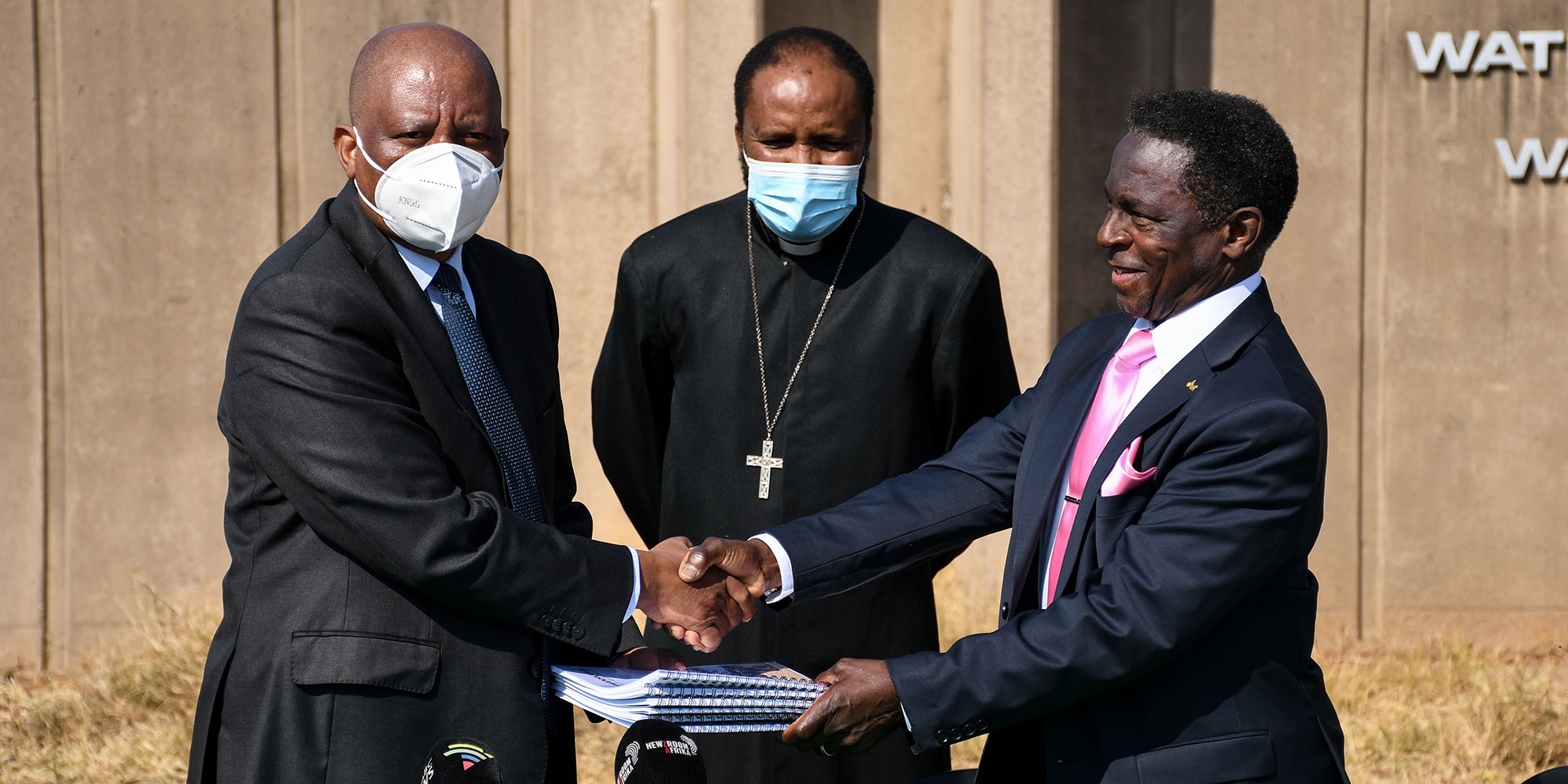
Professor Jonas Letsoalo (right) handed over the report by the Independent Commission of Inquiry into the Hammanskraal water crisis to President of Action SA Herman Mashaba (left), who commissioned the enquiry. Member of the commission, Reverend Thembelani Jentile (center) watches on. (Photo: Julia Evans)
Williams stated that he has made it his priority to attend to this issue and work toward upgrading and expanding the water infrastructure.
Williams states, “Phase 1 of the upgrade and refurbishment of Rooiwal Wastewater Treatment Works (WWTW) is currently underway at 54% towards completion. The expected final completion date is around October next year. In this current financial year alone, the City has budgeted R124-million towards the conclusion of Phase 1 of the project.”
Adding, “Strengthening the Rooiwal WWTW is a key resource towards a lasting solution.”
If the municipality fails to address the water crisis in the eyes of the commission of inquiry, the commission plans to approach the apex court of South Africa, the Constitutional Court, to seek an order against the City of Tshwane.
The report states, “it is unlikely that this will be resolved until and unless the courts declare the municipality’s unbecoming and unconstitutional conduct invalid in terms of section 172(1) of the Constitution.”
The water crisis in Hammanskraal that spans 16 years has now become a political battle.
The commission is unhappy with the municipality, and some are sceptical of ActionSA’s role in this matter, not least because of uncertainty around the timing of municipal elections this year.
When asked by the media if he was trying to get political mileage out of something that has been ongoing for years, president of ActionSA Mashaba said that people can draw their own conclusions if they want to, but they are proud to hold the government accountable.
Mashaba said, “people of South Africa deserve to have political parties that are going to be there to hold the government accountable. And therefore, we are not going to apologise about it. In fact, as I say, we take pride in actually defending the rights of South Africans.”
But for the residents, their main concern is simply the water, which affects their day-to-day functioning. After all, as resident Isaac Motloung said, “water, it’s life.” DM/OBP










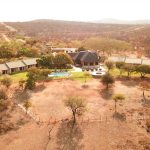
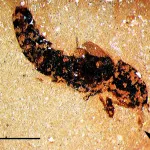








 Become an Insider
Become an Insider
Comments - Please login in order to comment.